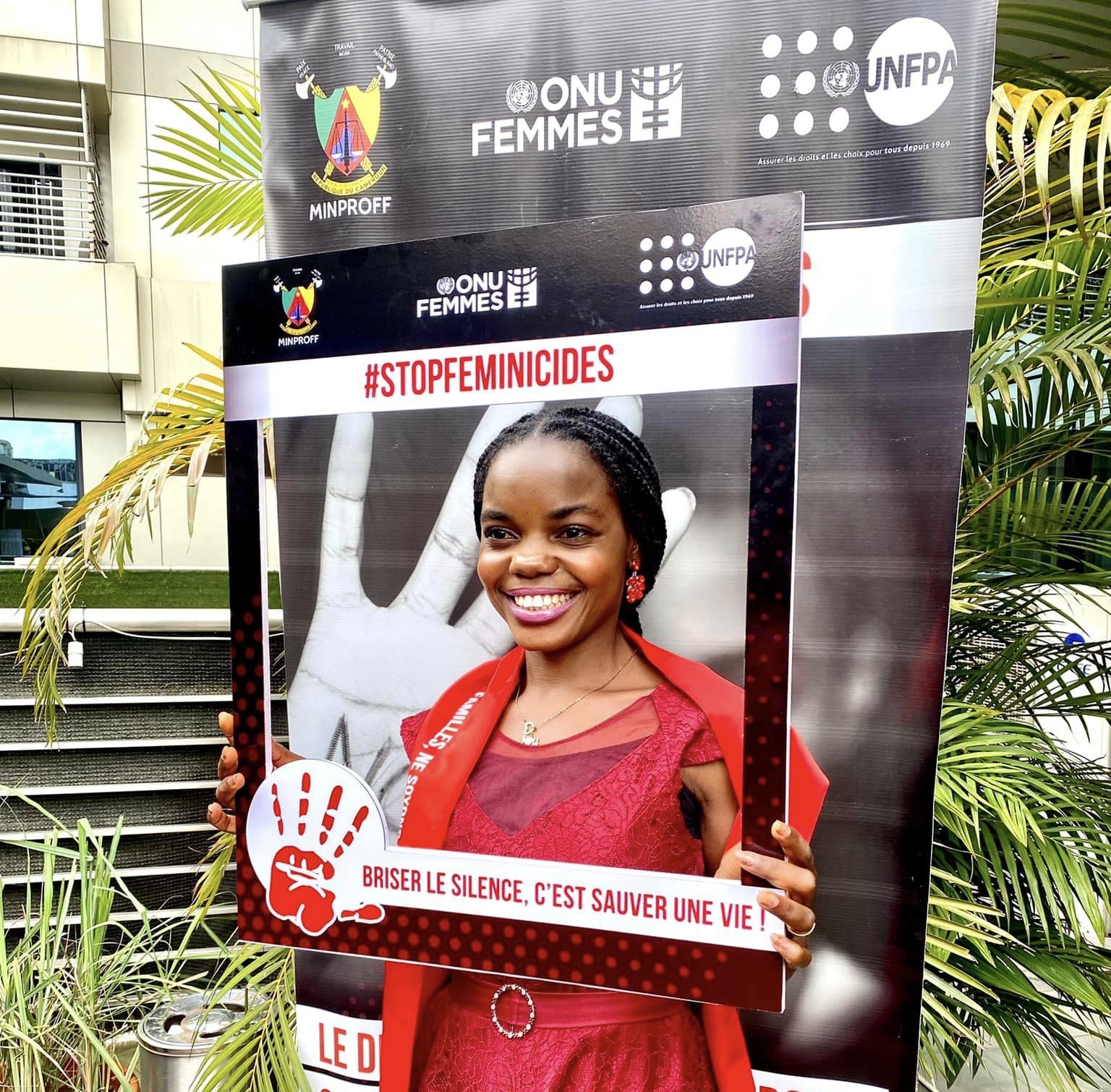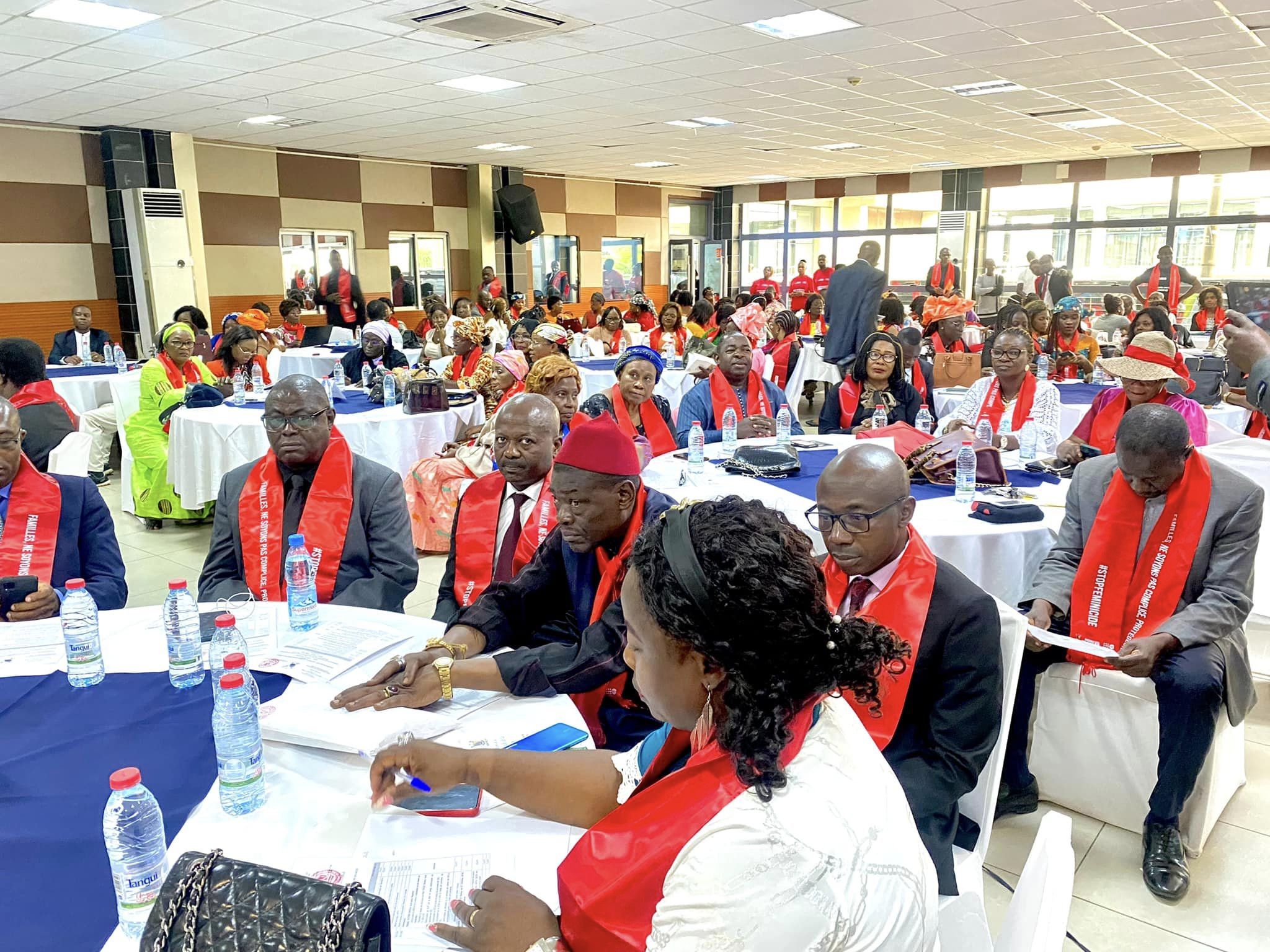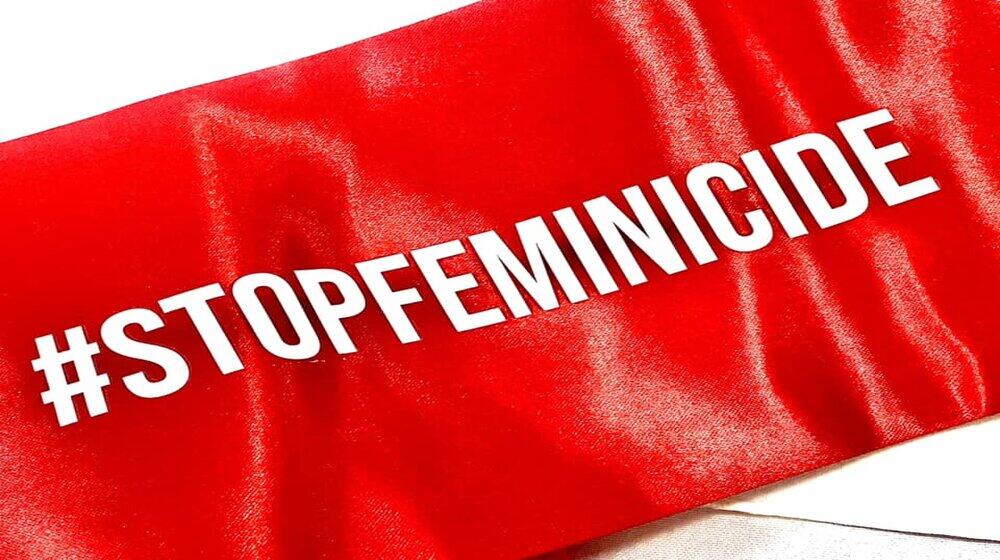
Empowerment and the Family
(MINPROFF) during her speech.
Photo: UNFPA Mai 2023
In the framework of the commemoration of the International Day of Families, the Ministry of Women’s Empowerment and the Family (MINPROFF) in partnership with UNFPA and UN WOMEN organized an advocacy session to end impunity for perpetrators of Gender-based, marital, domestic and family violence. The session brought together Prof. Marie-Therese Abena Ondoa, Minister of Women’s Empowerment and the Family, Mr. Momo Jean-de-dieu, Minister Delegate to the Minister of Justice, Prof. Jean Emmanuel Pondi, Rector of the ICT University and prominent he-for-she, representatives of forces of law and order, civil society and the media to ponder over the situation of the intentional killing of women or girls, widely known as feminicide in Cameroon.

event. Photo: UNFPA, May
2023.
presentations and speeches, the representatives of stakeholders present threw more light on their measures and efforts to support survivors and families. Prominent among them, the Ministry of Justice which presented the legal framework and procedures in the advent of any form of violence and subsequently feminicide. On the other hand, the police forces shed more light on the gender desk initiative which is a toll-free hotline through which cases can be reported directly to the police for rapid intervention. The media was not left behind thanks to the participation of Griote TV, an online TV channel focused on the well-being and empowerment of women. Griote TV presented their investigative journalism results around the phenomenon of Feminicides in Cameroon as well as their numerous initiatives in collaboration with various women-led civil society organizations to sensitize on the phenomenon and communicate on cases towards the final identification and repression of perpetrators.

Photo: UNFPA, May 2023
UNFPA, as a lead agency in working to respond to and reduce gender-based violence, supports the Ministry of Women’s Empowerment and the Family in humanitarian and development settings. As such, the organization has contributed to strengthening national policies; accountability, and normative frameworks, including laws on gender-based violence. UNFPA also works extensively in collecting data and generating evidence to understand the prevalence, incidence and impact of gender-based violence in Cameroon.


